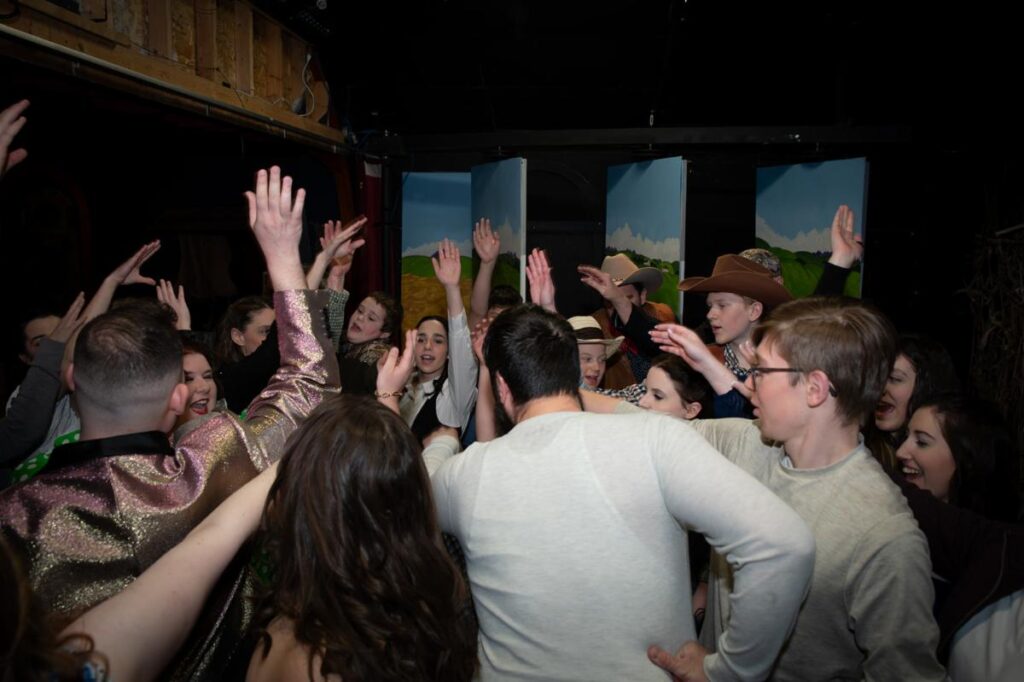
My first foray into theater was with Machickanee Players in Oconto. My kiddos were little girls when I joined the fold. They are now in their forties. I did lights and sound for such productions as Blithe Spirit and, my favorite, Our Town. (My then 11-year-old daughter Lauren played Rebecca Gibbs.) I was on stage in a fair number of plays, and directed a few as well. I also ended up directing spring productions at Oconto High School while my daughters attended. It was a marvelous experience to share with my daughter (she chose to work back stage for productions I directed) and all the students. I was witness to their transformations into character and overcoming shyness and fear. I saw the impact of having taken on and accomplishing the challenge of being part of a production.
What I cherish from those years of involvement was a grounding and a deep awareness of what makes community theater so dear, so special: the friendships and the setting aside of our personal lives for a few hours each night during rehearsals to be ‘in the moment’ and interact ‘in character.’ (This is a cathartic and life-changing experience which expands and enhances one’s perspective on life.) And it culminates in opening night and the live performances before an audience of people who live where you do.
The sphere of Broadway theater is the pinnacle of professional achievement. But community theater offers something Broadway cannot: the immediacy, the familiarity between audience and actors when the lights go up. They are not strangers. They are friends who grew up in the same town, the people who cross paths while doing weekend errands or out for a Friday night fish fry, perhaps even fellow fans at a Packers game. And when the lights go up, they are people watching actors they know on the stage, or actors seeing people they know amongst the spectators in the seats.
There is a magic in community theater and it is grounded in that familiarity. It takes root from the very first rehearsals and grows exponentially. Back stage staff, set designers and builders, those who find (or make) the props, those who coordinate the wardrobe, lighting and sound—volunteers all—create the world the actors will inhabit. Actors bond and come to trust each other while they memorize lines and become familiar with each other ‘in character,’ knowing that everyone is taking things extremely seriously even as they enjoy the process of becoming the characters they are playing. The director manages it all in a way, as the old saying goes, that is rather like shepherding cats, watching the actors grow into and inhabit their characters as the production begins to take shape. And, at the end of the rehearsal evening, reflecting back to them what is working (or not quite), all toward Opening Night, when the magic is shared with the audience and draws them into it.
Being on stage before an audience is rather a freefall. It can be daunting, but oh, so exhilarating, to be ‘in the moment,’ being the character, interacting with each other in creating the reality of the play’s story. We achieve the same level of perfection in local theater productions as would be found in any running on Broadway. But whether as actors or crew, technicians, builders, coordinators, director, or audience members, we are privileged to experience that perfection with people we know—as friends, or family, or even simply in passing.
